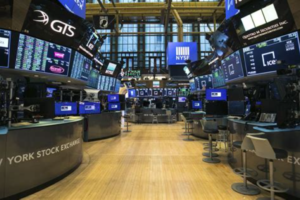Global Economy Braces for $1.4 Trillion Blow as Trade Wars Intensify
The global economy is at a critical juncture, with rising trade tensions threatening to inflict a staggering $1.4 trillion hit. As major economies impose tariffs and retaliatory measures, financial markets, businesses, and consumers worldwide brace for significant disruptions. This economic turbulence could lead to reduced exports, higher inflation, and a slowdown in global growth. Understanding the full scope of the crisis is essential for businesses, investors, and policymakers navigating this uncertainty.
The $1.4 Trillion Economic Shockwave
A recent analysis by Aston University reveals that escalating tariffs could shave off approximately $1.4 trillion from global GDP. This scenario assumes a 25% tariff on all imports, a move that could severely impact global trade. The United States, implementing aggressive tariff policies, stands to face the brunt of these actions. Increased consumer prices and economic stagnation are major concerns.
Who is Most Affected?
| Affected Sector | Impact | Example Cases |
|---|---|---|
| Manufacturing | Increased production costs, supply chain disruptions | Ford, General Motors revising production forecasts |
| Energy | Price volatility in crude oil markets | Oil prices fluctuating between $70-$85 per barrel |
| Agriculture | Declining exports due to retaliatory tariffs | U.S. soybean, corn, and pork exports significantly affected |
| Consumer Goods | Rising prices for imported products | Electronics, household items becoming more expensive |
This broad impact highlights why economists are urging urgent trade negotiations to mitigate damage.
Global Market Reaction & Investor Sentiment
Financial markets have responded with significant volatility to the ongoing trade war fears. The U.S. stock market has witnessed sharp declines, while European and Asian markets remain jittery. Investors are shifting towards safe-haven assets like gold, which recently hit a record high of $2,200 per ounce.
Key Financial Market Movements
- U.S. Stock Market: Dow Jones and S&P 500 facing sharp declines.
- Gold Prices: Reached an all-time high, signaling investor caution.
- Global Bonds: Increased demand for U.S. Treasury bonds as investors seek stability.
Impact on Key Industries
Manufacturing Sector
The global manufacturing industry is experiencing slowdowns due to increased costs and disrupted supply chains. Countries like China, Germany, and Japan—major manufacturing hubs—are seeing reduced industrial output.
Energy Sector
Oil markets remain volatile, with prices fluctuating due to potential supply chain restrictions. U.S. energy companies are facing higher operational costs due to new tariffs on imported raw materials.
Agriculture & Consumer Goods
U.S. farmers have been among the hardest hit, with exports of soybeans, corn, and pork significantly declining due to Chinese tariffs. Consumers are also feeling the impact, as prices for electronics, household items, and automobiles increase due to higher import costs.
Historical Parallels: Lessons from the Past
The current wave of protectionism draws comparisons to the 1930s, when trade barriers worsened the Great Depression. The Smoot-Hawley Tariff Act led to a 66% decline in world trade, further deepening the economic crisis. If similar policies continue today, we could face a prolonged period of economic stagnation.
Historical Perspective
Trade War Policies → Increased Tariffs → Decline in Global Trade → Economic Slowdown → Job Losses → RecessionUnderstanding these parallels allows policymakers to make informed decisions to prevent a repeat of history.
The Road Ahead: Possible Resolutions
- Diplomatic Trade Negotiations – Countries need to engage in multilateral discussions to resolve disputes and establish fair trade practices.
- Diversification of Supply Chains – Businesses should explore alternative sourcing options to mitigate risks from trade restrictions.
- Government Intervention – Policymakers must balance national interests with global trade commitments to prevent prolonged economic downturns.
Conclusion
With trade wars intensifying, the global economy faces an uncertain future. The projected $1.4 trillion economic blow underscores the urgent need for diplomatic resolutions and strategic policy shifts. Failure to address these tensions could result in a ripple effect of economic instability, affecting businesses, markets, and everyday consumers. The coming months will be critical in determining whether global leaders can find a path toward economic stability or if the world will slide into a deeper financial crisis.
[USnewsSphere.com / wto]





